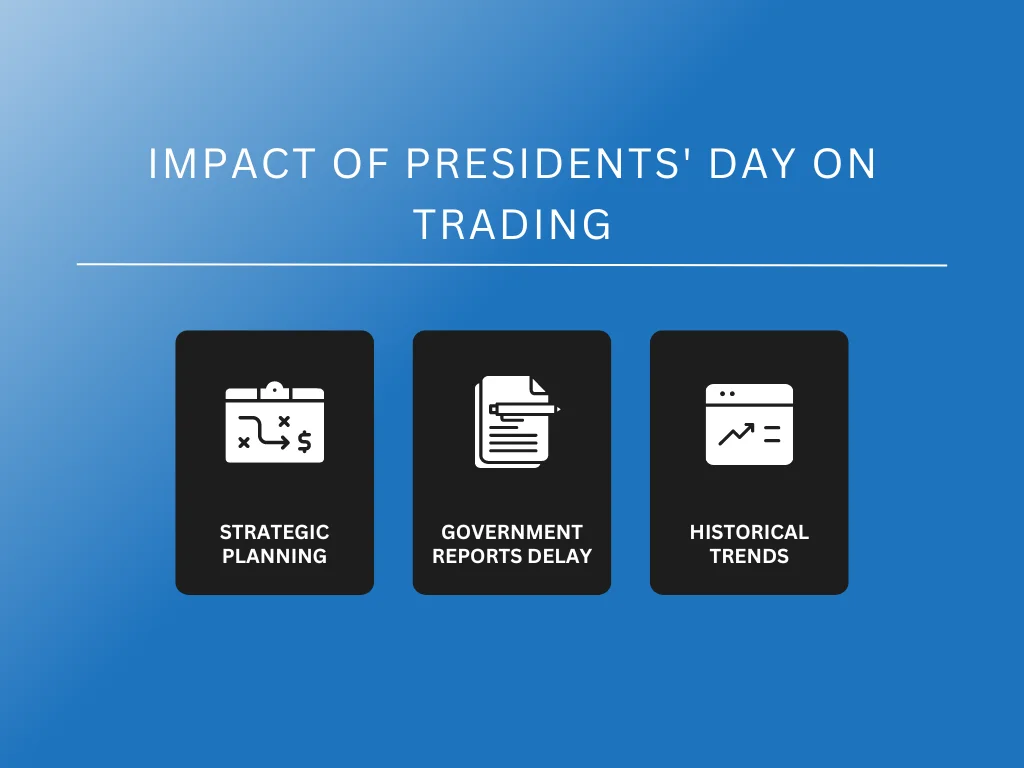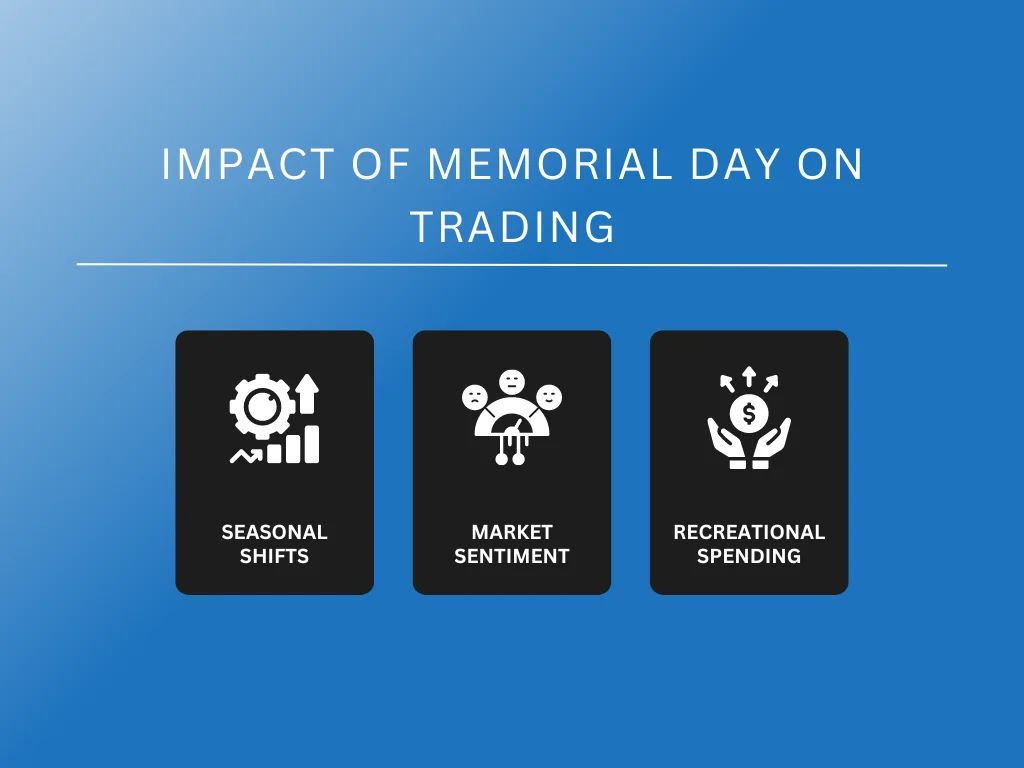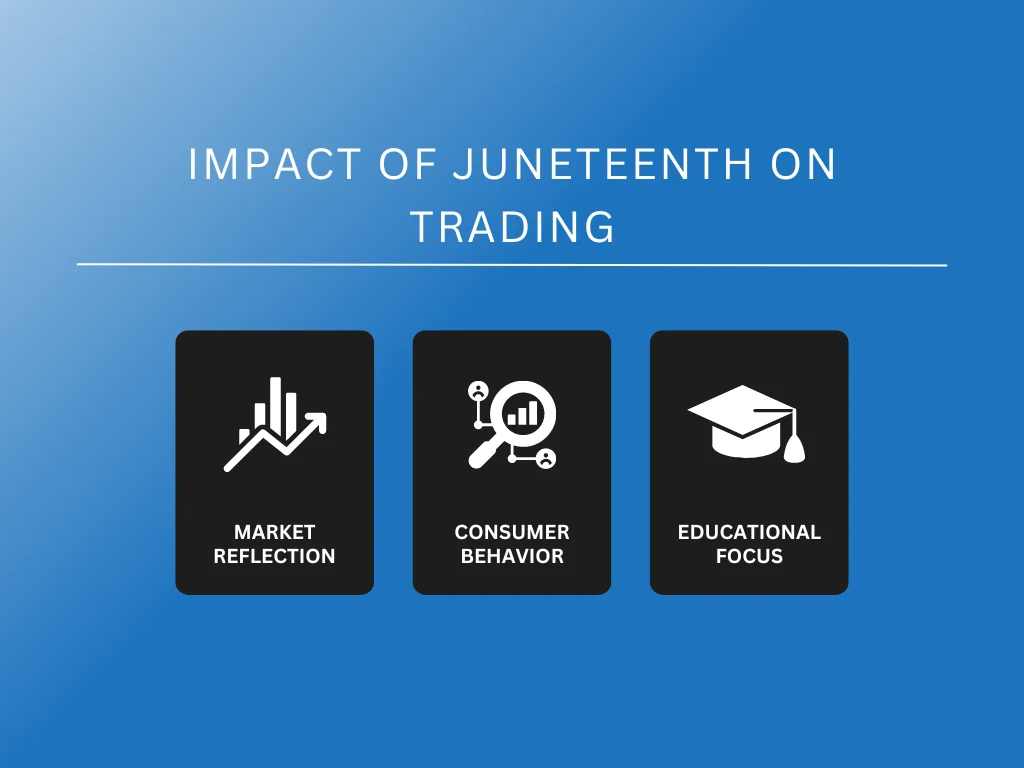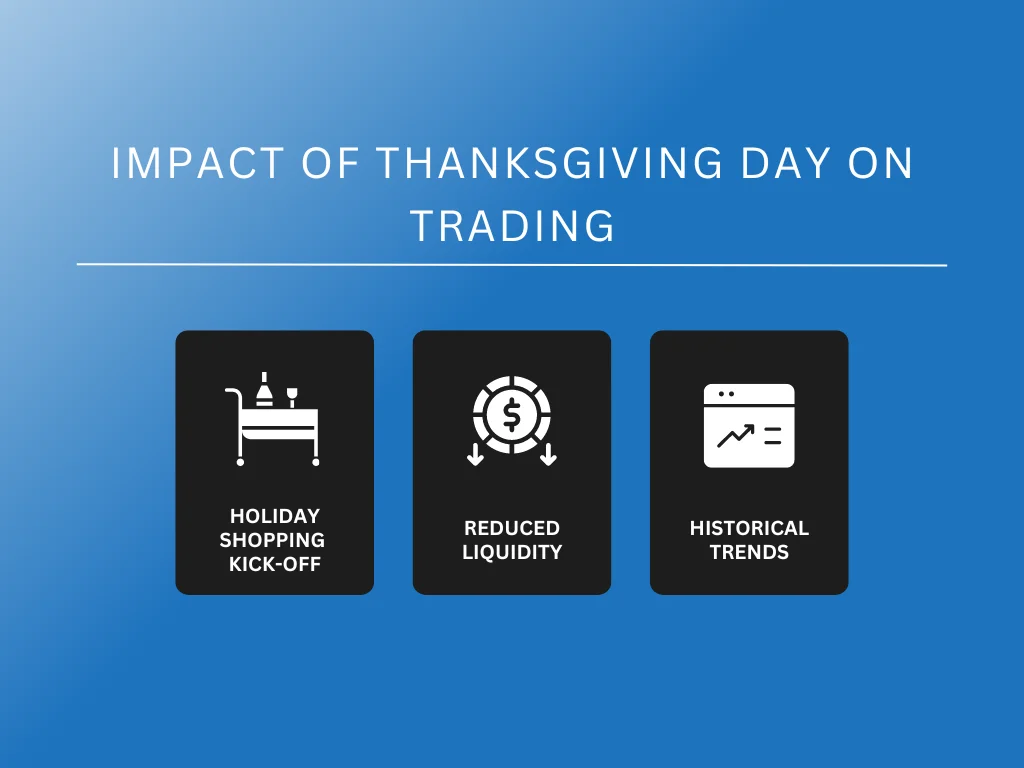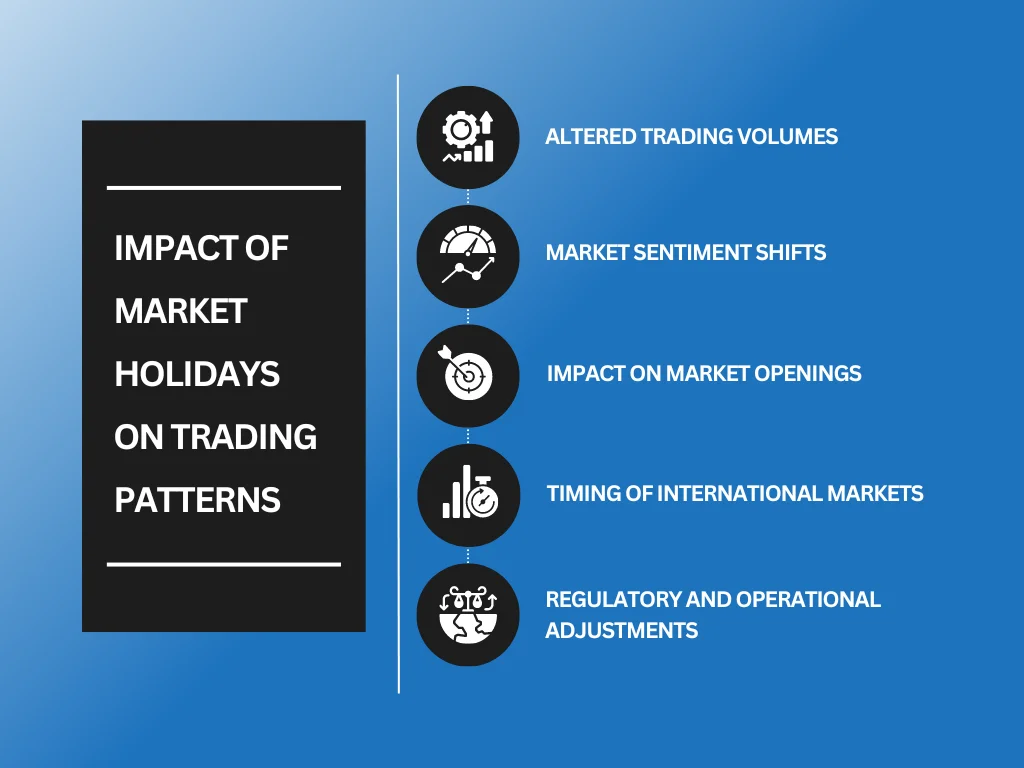
2024 Stock Market Holidays: Important Days You Need to Know
Understanding the strategic importance of planning around stock market holidays is crucial for anyone involved in trading or investing. Knowing the 2024 stock market holidays allows traders and investors to anticipate market closures and adjust their strategies accordingly. This knowledge is essential for maximizing trading efficiency and financial planning throughout the year.
At Spartan Trading, we specialize in online stock and option idea generation. We use our expertise to guide you through the complexities of stock trading and other financial platforms. As active participants in markets that adhere to specific holidays like Good Friday, Memorial Day, and Independence Day, we understand the aspect of trading hours and the impact of early closures on trading strategies.
Employing our best practices, we’ve compiled this guide that explores each holiday’s impact on trading patterns and financial markets. We’ll explore the 2024 stock market holidays and their influence on market behavior. By the end of this blog, you will understand how these closures affect trading hours and financial markets, preparing you for a successful trading year.
Let’s get started!
What Is A Stock Market Holiday?
A stock market holiday is when stock exchanges halt trading activities. These holidays, set by market authorities, typically align with national holidays. The decision to close the market allows traders and investors a pause from the fast-paced trading environment, ensuring they can plan activities without missing potential market movements.
They allow the financial markets to observe national events and traditions, ensure that all participants have time to rest and reset, and help maintain a standardized schedule across the financial industry, which aids in planning and operations.
Detailed List of 2024 Stock Market Holidays
The 2024 stock market holidays include several crucial dates significantly impacting trading strategies and financial planning. Understanding these holidays helps financial sector professionals prepare and adjust their operations effectively. Here are the stock market holidays 2024, helping you stay informed and prepared for market closures throughout the year.
1. New Year’s Day (Monday, January 1, 2024)
New Year’s Day marks a significant pause as the 2024 stock market holidays commence. This holiday provides traders and financial markets a rest day and sets the tone for the year’s trading strategies. As a leading 2024 stock market holiday, it affects planning and operations across financial sectors.
Impact of New Year’s Day on Trading
- Market Closure: Stock markets are entirely shut down on New Year’s Day, allowing traders to reassess their portfolios without the pressure of live trading. This break can influence market sentiment as traders reflect on past performance and future strategies.
- Volume Spikes: Typically, the days preceding and following New Year’s Day experience spikes in trading volumes. Investors adjust their positions to cater to new fiscal policies and market forecasts that become effective with the new year.
- Volatility in Prices: Reduced staffing and lower liquidity can increase volatility before and after New Year’s Day. Sharp price movements are common as fewer trades can cause larger impacts on stock prices.
Advanced planning ensures that the impacts of holiday closures are integrated into broader financial strategies, maximizing opportunities that arise during this quiet market period.
2. Martin Luther King Jr. Day (Monday, January 15, 2024)
Overview: Martin Luther King Jr. Day is one of the key 2024 stock market holidays that underscores the importance of strategic financial planning. This holiday commemorates an important historical figure and impacts financial markets where investors can evaluate and adjust their investment strategies.
Impact of Martin Luther King Jr. Day on Trading
- Reflective Pause: The holiday pauses trading activities, allowing investors to reflect on current market conditions and adjust their strategies accordingly. This break can be pivotal in setting the course for the upcoming financial quarter.
- Historical Trends: Historically, trading volumes tend to be lower just before and slightly higher after Martin Luther King Jr. Day. Investors often return to the market eager to implement new strategies or adjust their portfolios, leading to increased activity.
- Risk Management: Martin Luther King Jr. Day’s timing allows investors to assess their risk management strategies. The holiday occurs early in the year, making it a timely checkpoint for evaluating exposure and making necessary adjustments.
Considering historical trends and its unique pause, investors can better manage their strategies and prepare for the year ahead in the financial markets.
3. Presidents’ Day (Monday, February 19, 2024)
Presidents’ Day is crucial in the 2024 stock market holidays. All U.S. stock exchanges will close on it, offering traders a moment to reflect on broader economic policies and their implications for the financial markets.
Impact of Presidents’ Day on Trading
- Strategic Planning: This holiday provides a valuable pause for financial institutions and investors to strategize and align their portfolios with the year’s anticipated market trends and economic policies.
- Government Reports Delay: Financial reports and economic data releases scheduled for this day are postponed, leading to pent-up market reactions when exchanges reopen.
- Historical Trends: Historically, markets tend to show bullish behavior following Presidents’ Day, as trading resumes and investors react to delayed data and news.
Traders should use the break during Presidents’ Day to prepare for post-holiday market activities. Investors can better position themselves for potential market movements by anticipating delayed responses to news and reports.
4. Good Friday (Friday, March 29, 2024)
Good Friday stands out among the 2024 stock market holidays because it is not a federal holiday, yet the stock markets close, observing a long-standing tradition.
Impact of Good Friday on Trading
- Non-Federal Observance: Although it’s a stock market holiday, banks and other financial entities remain open, creating unique dynamics where reduced stock liquidity can lead to increased volatility.
- Global Markets: International markets that remain open on Good Friday may see unusual patterns due to the U.S. closure, affecting global trading strategies.
- Sector-Specific Impacts: Due to the uptick in shopping and travel over Easter weekend, retail and consumer goods industries might see varied impacts.
Investors should note the unusual market conditions around Good Friday. Understanding global market activities and sector-specific trends during this time can provide strategic advantages.
5. Memorial Day (Monday, May 27, 2024)
Memorial Day, a significant event in the 2024 stock market holidays, marks the beginning of summer with a day off for U.S. markets, significantly impacting trading activities.
Impact of Memorial Day on Trading
- Seasonal Shifts: This holiday signals a shift in trading patterns, often leading to the ‘Sell in May and go away’ phenomenon, where traders reduce their market presence during summer.
- Market Sentiment: The long weekend can lead to a more cautious approach to trading activities the week before the holiday.
- Recreational Spending: Increased consumer spending over the long weekend can positively impact sectors like travel and retail, influencing stock performance.
Effective Memorial Day planning involves anticipating a slowdown in trading activities and considering the economic impact of increased seasonal consumer behaviors.
6. Juneteenth National Independence Day (Wednesday, June 19, 2024)
Juneteenth National Independence Day, recently recognized among the 2024 stock market holidays, observes the end of slavery in the U.S. and reflects broader societal values impacting market sentiment.
Impact of Juneteenth on Trading
- Market Reflection: The holiday allows the financial community to reflect on social justice issues and their influence on corporate governance and investor decisions.
- Consumer Behavior: Juneteenth may influence consumer behavior and spending, particularly in culturally significant markets and sectors.
- Educational Focus: Businesses and educational institutions may leverage this day for learning and outreach, affecting operations in related sectors.
Investors should consider Juneteenth’s broader implications for consumer behavior and corporate social responsibility initiatives and plan their strategies accordingly.
7. Independence Day (Thursday, July 4, 2024)
Independence Day is a significant fixture in the 2024 stock market holidays. It traditionally brings all U.S. financial markets to a halt. This day is celebrated with public festivities and a general focus away from the financial markets.
Impact of Independence Day on Trading
- Historic Low Volume: Trading volumes typically drop significantly before the holiday as traders and financial professionals take time off to celebrate.
- Market Optimism: Often, the market surges following the holiday, reflecting a refreshed, optimistic investor sentiment.
- Sector Boost: Sectors such as retail, entertainment, and travel often see increased activity around this holiday, which might influence specific stock performances.
To effectively plan around Independence Day, traders should account for low liquidity and prepare for a potential uplift in market sentiment post-holiday, particularly in consumer-driven sectors.
8. Labor Day (Monday, September 2, 2024)
Labor Day, another critical date among the 2024 stock market holidays, signals the unofficial end of summer and a return to higher trading volumes and renewed market activity.
Impact of Labor Day on Trading
- Volume Increase: Trading volumes typically increase after Labor Day as traders return refreshed and ready to engage with the market.
- Strategic Realignments: Many investors use this time to reassess and realign their investment strategies for the last quarter of the year.
- Economic Indicators: This holiday also precedes a period rich with economic indicators and reports, which can significantly influence market movements.
Traders should use the Labor Day break to refine strategies and prepare for an active trading period, keeping an eye on forthcoming economic reports that could affect market dynamics.
9. Thanksgiving Day (Thursday, November 28, 2024)
Thanksgiving Day is a cornerstone of the 2024 stock market holidays. It is celebrated widely across the U.S., leading to a complete market closure and a traditionally shorter trading session the following day.
Impact of Thanksgiving Day on Trading
- Holiday Shopping Kick-off: This holiday marks the beginning of the holiday shopping season, influencing stock trends, especially in retail.
- Reduced Liquidity: The market experienced notably reduced liquidity around this holiday, with many traders taking extended breaks.
- Historical Trends: Historically, markets tend to exhibit an upward trend in the days following Thanksgiving, commonly referred to as the Thanksgiving rally.
Investors should plan for reduced trading activity during Thanksgiving but be prepared for potential bullish trends in the following days, which will mainly benefit retail and consumer stocks.
10. Christmas Day (Wednesday, December 25, 2024)
Christmas Day is among the most significant 2024 stock market holidays, with global implications as many world markets close or operate on reduced hours.
Impact of Christmas Day on Trading
- Global Slowdown: The global nature of the Christmas holiday results in a general slowdown in trading activities worldwide.
- Year-End Positioning: Investors often use this time to adjust portfolio positions, closing out the year with strategic moves based on annual performance.
- Consumer Sector Influence: The consumer sector sees a peak in activity before the holiday, which can influence stock performance in retail and e-commerce.
To effectively plan around Christmas, traders should consider the global slowdown in market activities and its potential impacts on sector-specific stocks, particularly those related to consumer spending.
Impact of Market Holidays on Trading Patterns
The 2024 stock market holidays can significantly influence trading patterns, affecting liquidity, volatility, and trading volumes. During these periods, trading activity may decline due to reduced participation from institutional investors and market makers. Here are five key impacts of market holidays on trading patterns:
1. Altered Trading Volumes
Stock market volumes generally reduce during the 2024 holidays. Before holidays such as Christmas and New Year, many traders close positions so that they do not have to occupy them for too long during market closures, hence low trading volumes. On the contrary, there is usually a sharp increase in trade volume during the last hours before the market closes as traders make final adjustments to their portfolios.
2. Market Sentiment Shifts
Market sentiment changes significantly during holidays like Martin Luther King Jr.’s birthday and Veterans Day. Traders and investors may be more careful, leading to a conservative trading environment. Columbus Day or Thanksgiving are among those holidays that positively affect positivity due to more shopping hours, consequently influencing sectors like retail or consumer goods.
3. Impact on Market Openings
The first trading session after holidays like Christmas and New Year’s often experiences unpredictability. Accumulated orders over the holiday break, along with the absence of continuous executions, can lead to sharp movements in stock prices upon market opening. The Eastern time zone’s opening hours post-holidays are particularly volatile.
4. Timing of International Markets
2024 stock market holidays in the United States, such as July 4th and Labor Day, can also affect international markets. When U.S. markets close, international markets like Europe and Asia may experience reduced liquidity. This is crucial for traders dealing in international stocks or global indices.
5. Regulatory and Operational Adjustments
Stock exchanges, including NYSE Chicago and NYSE Arca Equities, must adjust their operational schedules around the 2024 stock market holidays. These adjustments ensure compliance with SEC regulations and maintain orderly market function. Special trading sessions, such as the NYSE National late trading sessions, may be organized around holidays to accommodate unique trading needs.
Trading Strategies for Stock Market Holidays
Trading opportunities can be limited during stock market holidays, but investors can still capitalize on strategic moves. Understanding these tactics can help traders make the most out of market downtime. Here are five trading strategies to navigate these periods effectively:
1. Anticipate Reduced Liquidity Before Holidays
Trading volumes can drop significantly on days leading up to the 2024 stock market holidays, particularly on the Wednesday before Thanksgiving or the Monday after Juneteenth. Investors should prepare for reduced liquidity, which can lead to higher volatility. To mitigate risks associated with price fluctuations, consider setting tighter stop-loss orders or scaling back on risky trades.
2. Take Advantage of the “Holiday Effect”
The stock market performs better before and after certain holidays, such as Christmas and New Year’s Day. This “Holiday Effect” can be attributed to increased consumer optimism and spending. Traders might consider buying stocks a few days before these 2024 stock market holidays and selling them after, when prices may rise in response to the festive mood.
3. Monitor International Markets
For holidays like Thanksgiving, primarily a U.S. holiday, international markets such as the Intercontinental Exchange operate on regular hours. Traders can capitalize on opportunities in these markets when the U.S. markets are closed. Keeping alerts for global market movements, especially in sectors like technology where companies like Nvidia are active, can provide alternative trading opportunities.
4. Adjust for Early Closures
The markets might close early on certain 2024 stock market holidays, such as Christmas Eve or the day before Independence Day. During these sessions, the trading volume is usually lighter but unpredictable. Traders should plan to execute their trades well before the early closing to avoid the rush of last-minute trades. Setting session orders in advance ensures participation without having to monitor the market continuously.
5. Utilize Derivatives During Off Days
On days when the stock market is closed, such as Sundays or national holidays like the Fourth of July, trading derivative products that follow market indexes (like those trading on other exchanges that operate on regular hours) can be beneficial. When the market reopens, options and futures can effectively hedge against potential market gaps.
Key Takeaway
The 2024 stock market holidays are strategically crucial for trading journals. Recognizing these dates enables traders to anticipate market closures and plan their activities accordingly. This foresight avoids potential pitfalls associated with unexpected market closures and maximizes opportunities for gains. Stock market holidays are essential for maintaining an edge in the fast-paced trading environment.
Effective planning around the 2024 stock market holidays enhances resource utilization, crucial for maintaining a competitive edge. Tools like the Finviz screener, TradingView stock heatmap, and Barchart compare stocks can further refine your strategy. With insights from the best day trading books, traders can craft robust approaches that leverage holiday-induced market behaviors. This comprehensive preparation ensures traders are aware of each trading day.
Are you ready to optimize your trading strategies around the 2024 stock market holidays? Spartan Trading will guide you through integrating these insights into your trading plans. Contact us today to start planning with precision and ensure you are well-prepared for the trading opportunities.







